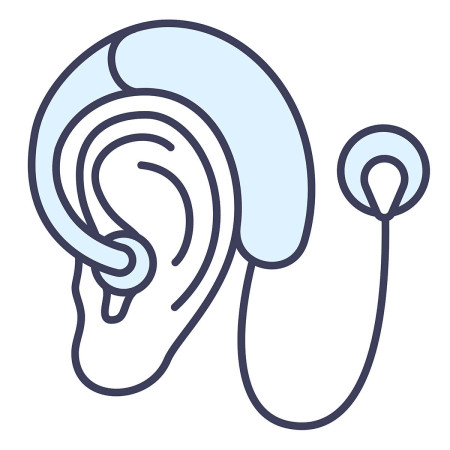
Patients diagnosed with severe hearing loss or deafness are indicated for cochlear implantation. Before and after the surgery, the patient must undergo a series of examinations and follow-up appointments. For pediatric patients, good cooperation from parents is essential.
Once hearing loss is detected, it is necessary to begin rehabilitation with hearing aids as soon as possible, even in the case of planned cochlear implantation. Patients are therefore monitored at an otolaryngology clinic. Speech therapy is also crucial, as well as regular follow-ups to track the progress in speech and hearing development.
Before the surgery, patients must undergo a neurological examination, including imaging methods (MRI or CT) of the brain and an eye examination. Genetic testing is also routinely performed to determine the possible cause of hearing loss, which in some cases may be associated with other disabilities. Early detection of these conditions can influence the prognosis of the disease in the patient. All examinations are often performed together during a so-called diagnostic hospitalization.
The surgical procedure is performed under general anesthesia. The patient is admitted the day before the surgery, and patients are typically discharged into home care on the 4th to 7th postoperative day. The first programming of the processor with the biomedical engineer and speech therapist takes place 3-4 weeks after the surgery. Initial follow-up appointments are frequent—every 2-4 weeks. The interval between appointments gradually lengthens, and eventually, patients are monitored at least once a year.
Rehabilitation at home, following the speech therapist's instructions, is also important, especially in the first months to years. Care for pediatric patients after cochlear implantation is time-consuming but enables the development or improvement of speech and hearing, and thus the integration into everyday life.